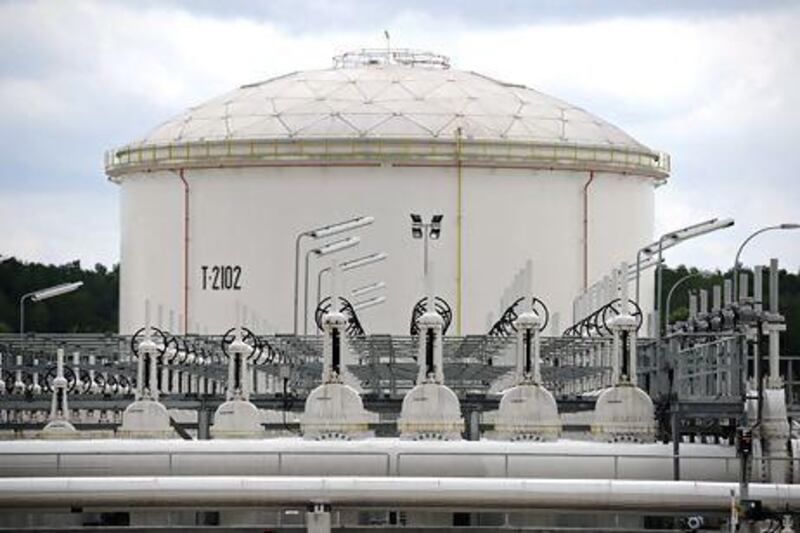Abu Dhabi will invest close to US$7 billion (Dh25.71bn) in an oil storage facility in Malaysia.
Sheikh Mohammed bin Zayed, Crown Prince of Abu Dhabi and Deputy Supreme Commander of the Armed Forces, used his one-day visit to Kuala Lumpur to conclude the deal, attending the signing ceremony alongside Najib Razak, Malaysia's president.
Mr Razak said the planned facility would be built at a cost of $6.75bn in Tanjung Piai in Johor state, and would be able to hold up to 60 million barrels of oil.
Malaysia wants to develop the area as an oil and gas hub. The bulk of Abu Dhabi's oil ends up in Asia, where economic growth is fanning demand for energy.
In a separate agreement, Abu Dhabi's Aabar Investments and 1Malaysia Development, a state-owned strategic development company, committed to a "strategic partnership" to invest 18bn ringgit (Dh21.26bn) in Malaysia. The partnership "will focus on investments in important high-impact projects vital to the long term economic and social growth of Malaysia", the Malaysian company said.
It is not the first time that Abu Dhabi, which holds 6 per cent of known crude reserves, and pumps an estimated 2.65 million barrels per day (bpd), has agreed to invest in storage in Asia. Last November, Abu Dhabi National Oil Company (Adnoc) signed a lease for 6 million barrels of storage capacity near the South Korean port of Yeosu.
Storing oil in export markets gives Abu Dhabi greater leverage in marketing its product, allowing it to respond more quickly to fluctuations in demand, and to supply the market with smaller quantities than the typical 2 million barrels carried by modern oil tankers.
Arabian Gulf producers are keen to extend their influence in the marketing of oil, and to add value to their exports with projects overseas. "There's a push to market their oil more actively and add to their downstream capacity," said Robin Mills, the head of consulting at Manaar Energy Consulting.
Oil storage capacity in target markets also increases the security of supply, added Mr Mills.
Driven by China's relentless industrialisation, Asian demand for crude continues unabated, even as imports from the United States are declining because of growing domestic production, Opec figures show. Whereas US imports declined by 2 per cent in January from December, Chinese imports expanded by 6.2 per cent to an average 5.9 million bpd, according to Opec data released yesterday.
Yesterday also marked the changing of the guard at the UAE's Ministry of Energy, as Suhail Mohamed Al Mazrouei replaced the veteran Mohammed Al Hamli as minister.
fneuhof@thenational.ae
Abu Dhabi to invest in Malaysian oil storage
Abu Dhabi extends its reach into the oil markets with a US$7 billion investment in oil storage in Malaysia.

Editor's picks
More from the national




